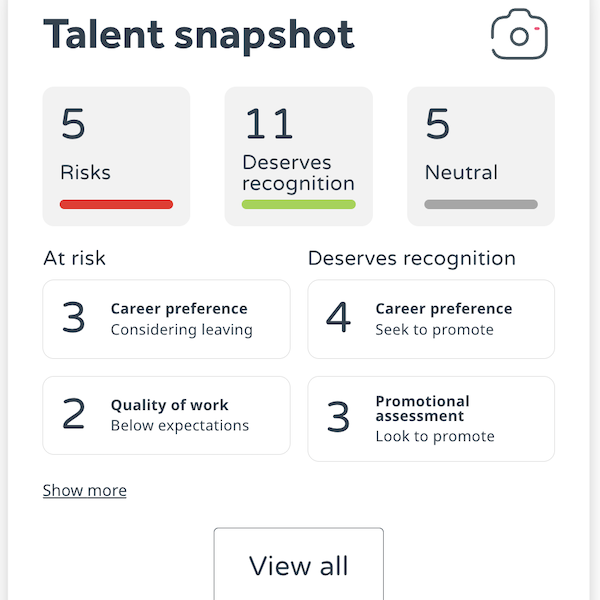
Stress is talked about more than any other workplace topic and it’s not hard to see why – there are enough reasons to makea list of the top 10 causes of stress at work! A study by Perkbox in 2020 found a staggering 79% of UK employees experience stress at work.
Yet, solving stress at work is one of the most elusive pieces of the productivity puzzle. Ensuring employees get the right amount of stress to keep them motivated, but not so much it saps engagement, is one of the biggest workplace conundrums of our time.
So much has been written – type ‘stress in the workplace’ or ‘top 10 causes of stress at work’ into your search engine and you’ll be reading articles, blogs and snippets for days, or even weeks.
Covid-19 hasn’t improved matters. Research by health insurer AXA, which polled 5,800 workers from across the UK and Europe, found that work-related stress has increased during the pandemic. And many now say workplace stress is reaching a critical phase.
Before it can be tackled, business leaders and managers must truly understand the causes.
The top 10 causes of stress at work
1. Toxic workplace culture
The culture of an organisation is a wide-ranging topic, but it’s a significant one. The move to homeworking during the pandemic may have felt like a silver lining to those working in companies with a toxic culture, but the likelihood is it will have followed people home. Toxic behaviours by colleagues or managers don’t stop just because they aren’t in person. It carries on over Zoom or on the phone.
So, what is a toxic workplace and how is it stressful?
Recruitment site, Monster, hits the nail on the head when summing up a toxic work environment, describing it as a place where dysfunction and drama reign! Whether you are on the end of micromanaging, bullying or the victim of office gossip, it’s a dysfunctional space that dampens your spirit. A toxic culture is harmful to morale and mental health, and because it keeps people on edge, it’s damaging to physical health as well.
This type of environment doesn’t serve businesses well – the cost of toxic cultures is a staggering £15.7 billion per year, according to research from HR software provider Breathe.
2. Demanding roles or demanding managers
The quality of a manger is the most important factor in employee engagement. Overly demanding bosses are the worst (though unsupportive, absent ones also take their toll). Dealing with unreasonable demands is hugely stressful for even the most resilient of employees. It is telling that ‘burnout’ was added to the World Health Organisation (WHO) international classification of diseases list in 2019, and clearly takes its place as one of the top 10 causes of stress at work.
And it’s not only disengaged staff who suffer – in a Deloitte survey on Workplace Burnout, 87% of professionals surveyed say they have passion for their current job but 64% say they are frequently stressed, dispelling the myth that passionate employees are immune to stress or burnout. Managers need to get better at recognising there’s a problem and put measures in place to help.
3. Bullying and harassment

Research on Bullying at Work carried out by the UK’s Trade Union Congress (TUC) found that 29% of people have been bullied in the workplace and 72% of them reported that the bullying was being carried out by the manager.
Stress and ill health can become part of the daily life of those being bullied. It gets worse. A new report from the Chartered Institute of Personnel Development (CIPD) says a quarter of employees believe bullying and harassment are being overlooked.
4. Poor communication
A lack of clarity and insufficient or confusing communication can cause untold problems at work. This is often compounded by the inability of a colleague or manager to listen. The Perk Box study found a ‘lack of interdepartmental communication’ as the second most common cause of stress at work. Poor communication takes many forms but results are the same – people are less informed, confused about their jobs and filled with anxiety.
5. Relationships at work
We can spend more time with our work colleagues than our friends or family, and we don’t get to choose who we work with. People are hired for their skills, not their matching personalities. And, inevitably, there can be friction between co-workers.
Although many workplaces can be supporting environments, it is not always the case. Colleagues can be susceptible to jealousies or become unhealthily competitive. If unchecked, it can mutate into bullying, intimidation, gossiping or back-stabbing.
Going to a workplace where a colleague’s behaviour undermines you is overwhelmingly stressful. It’s not always easy to spot, but a good manager should always be on the lookout for tension between staff members.
6. Change
We are hard-wired to detect changes to our environment. Our cave-dwelling ancestors relied on sensing danger to avoid being the hunted rather than the hunter.
So, it is no wonder that we remain suspicious and nervous of change – and at work it is a major trigger for stress. Will the new boss think I am any good? Will I be able to cope with the new software? Why are we moving office? Is my job safe with the new owners?
Change should be a force of good, but it is also a cause for worry. Managers should always look to reassure their team and be available to answer, with honesty, any concerns.
7. Lack of development opportunities
We all want to feel valued and know that we are progressing. A job without opportunities can be soul-destroying. While routine can be reassuring, it can also be stifling.
Not everyone can be the Managing Director, but it is important to remember that everyone has ambitions and dreams. Closing off avenues to self-improvement can have a devastating impact on self-esteem. And someone who lacks self-esteem, is at risk of stress, or even depression. Discover how you can create a culture of development in our guide.
8. Work environment
The work environment should not be a place of stress, but it can so easily become a centre of negativity.
Every workplace can be adapted to make it a better place for employees. In an office, for example, an employer can provide ergonomic chairs and desks, ensure there is ventilation and heating, include breakout areas, check that the lighting is right, add plants and artwork, and generally endeavour to make the space as pleasant as possible.
If you suffer from backache due to poor furniture or headaches from harsh lighting, your work experience is going to be traumatic. A little thought goes a long way. Your team members are valuable – look after them. For remote workers this includes workstation assessments for work areas at home.
9. Job security and financial worries
Now more than ever people are seriously concerned about the future. The pandemic has disrupted working life and many people have been furloughed. ‘Job security and financial worries’ has leapt into the top 10 of things that are causing employees to feel stressed.
10. Work-life balance
Remote working has become the new norm for many. But how are we coping? The Mental Health Foundation says the pressure of an increasingly demanding work culture in the UK is perhaps the biggest and most pressing challenge to the mental health of the general population. A survey by the charity found one third of respondents feel unhappy or very unhappy about the time they devote to work, a clear sign that many are struggling with work-life balance.
So, what can employers do to combat these top 10 causes of stress at work?
Understanding what is stressing your employees is the first step – training your managers on how to mitigate the risks should follow closely behind.
That’s where we can help. WeThrive’s employee engagement survey software cuts through the noise to get to the heart of how people truly feel. And our software doesn’t stop at survey results. It also produces action plans, curated learning resources and e-learning courses for your managers. WeThrive tells you specifically what to do to reduce stress and safeguard the wellbeing of your people.


